Can capitalism ever really be inclusive? featuring Lynn Forester de Rothschild and Stephanie Mehta
Transcript
[Can capitalism ever really be inclusive? Lynn Forester de Rothschild, founder and CEO, Coalition for Inclusive Capitalism. CEO, E.L. Rothschild. A tall white athletic woman wearing a black sleeveless top and blue skirt. Stephanie Mehta, editor-in-chief, Fast Company. An Asian American woman wearing a black long-sleeved dress, black tights, and Mary Jane style shoes.]
ANNOUNCER: Please welcome Lynn Forester de Rothschild and Stephanie Mehta.
[applause]
STEPHANIE MEHTA: I’m very pleased to be interviewing Lynn de Rothschild, who is a philanthropist, a seasoned executive, and, most importantly, for the purposes of this conversation, she is the founder and CEO of the Center for Inclusive Capitalism, which is focused on advancing economic and social justice. So, Lynn, thank you for being with us here today.
LYNN FORESTER DE ROTHSCHILD: Thank you. Thank you for having me, and thank you for this cover. See what she did today? “Capitalism is dead. Long live capitalism.” We will figure this out, okay, Stephanie?
STEPHANIE MEHTA: In 15 minutes or less. But I want to start, before we get to the question of whether or not capitalism can ever be truly inclusive, by talking a little bit about the challenge—the challenge that societies and businesses and economic systems face. At the center, you’ve done some research that really tries to pinpoint some of the challenges around inequality that we have. At a very high level and very quickly, what are you seeing?
LYNN FORESTER DE ROTHSCHILD: So, just to level set—and if we don’t mind, just keeping it to America—with a few facts: Um, our top one percent controls 42 percent of our national wealth. Our top 0.1 percent controls 22 percent of our national wealth. And to give that perspective, that amount of money is the same that the remaining bottom 90 percent controls. And—40 percent can’t come up with $500 in an emergency. Surprise, surprise: 60 percent of Americans don’t believe the system works. That’s kind of a rational reaction, I think. So, if we don’t have inclusive capitalism, which means an economy that works for all—not equal outcomes for all, but equal access to the outcomes that a person desires. We’re talking a lot about what’s in people’s hearts. What motivates a person is what they can do with their lives, that they can have a dream. There was something once called the American dream, and that was if you work hard and play by the rules, you can make anything happen in your life. I was born in 1954, and I certainly believed in that American dream. For me, “inclusive capitalism” was, you know, a redundancy. I wouldn’t think—because I knew it included me. For no reason. I was a skinny, you know, blonde girl from nowhere. And I believed it worked. I believed it was inclusive. But people today think it’s a complete oxymoron, and either we’ve got to decide we’re going to give up on capitalism or we have to make real reforms, so that it is a sustainable, inclusive, trusted system that leads to strong economic growth. is economic growth alone doesn’t do it. That 0.1 percent—they’ve had a thousand percent increase in their income, while the bottom 50 has been flat since 1980.
STEPHANIE MEHTA: So, what needs to change for us to truly have corporations that are taking an inclusive approach? You know, we have enlightened leaders of corporations, who may be trying to do the right things. What needs to—what conversation needs to be had with investors so it’s not like we’re sneaking spinach into the brownies when we talk about, you know, the right thing to do for our corporations?
LYNN FORESTER DE ROTHSCHILD: Right, no, it is really, really critical, and what the Coalition for Inclusive Capitalism and a lot of the groups look at is the entire ecosystem—that this is not about asking CEOs to stand up and do the right thing. It is about that, but an example of where it can really go wrong for a CEO is, a couple years ago the CEO of American Airlines decided that he would pay his flight attendants their increased salary a year earlier than their union-negotiated contract demanded. And he announced that. He put that out, and the Wall Street Journal said, “America pay—American pays its employees more. Wall Street goes nuts.” So, you can’t expect a lot of CEOs to travel down that route. So, your question is absolutely right. It’s the, it’s the entire ecosystem of the capital markets that have to be engaged in accepting a couple of things. Accepting, number one, that, you know, God didn’t create the corporation. The corporation is a construct of society, and that social contract that the business has with society—if it collapses, nobody’s going to have a, a decent, um, a decent business. The other part of it is that study after study shows that companies that pay attention to their customers, to their employees, to their communities, are better long-term value creators. So, the asset owners need to lead the way, and, um, what inclusive capitalism is, is not philanthropy and not CSR. And it’s not how we give away our money, but how are we making our money. And each of us, from wherever we are sitting—whether we’re an employee, a CEO, or, or a philanthropist who’s—wherever we are, we have to ask that question. Are we making our money in the right way?
STEPHANIE MEHTA: Well, it sounds like the answer to the question we were setting out to answer is—can capitalism be truly inclusive, and the answer appears to be yes. Thank you, Lynn.
LYNN FORESTER DE ROTHSCHILD: Thank you. Thanks.
[applause]
[New gospel of wealth. What does #GenerosityToJustice look like to you? Ford Foundation dot org forward slash new gospel.]
Accessibility Statement
- All videos produced by the Ford Foundation since 2020 include captions and downloadable transcripts. For videos where visuals require additional understanding, we offer audio-described versions.
- We are continuing to make videos produced prior to 2020 accessible.
- Videos from third-party sources (those not produced by the Ford Foundation) may not have captions, accessible transcripts, or audio descriptions.
- To improve accessibility beyond our site, we’ve created a free video accessibility WordPress plug-in.
Lynn Forester de Rothschild, CEO of E.L. Rothschild, explains the challenges that will arise with increasing economic inequality and what we must do now to create a more inclusive and equitable future. Moderated by Stephanie Mehta of Fast Company.
“There was something once called the American dream…if you work hard and play by the rules, you can make anything happen in your life. And I believed it worked. I believed it was inclusive. But people today think it’s a complete oxymoron. And either we’ve got to decide we’re gonna give up on capitalism or we have to make real reforms so that it is a sustainable, inclusive, trusted system.”
– Lynn Forester de Rothschild
Learn more about New Gospel of Wealth
Other videos in this series
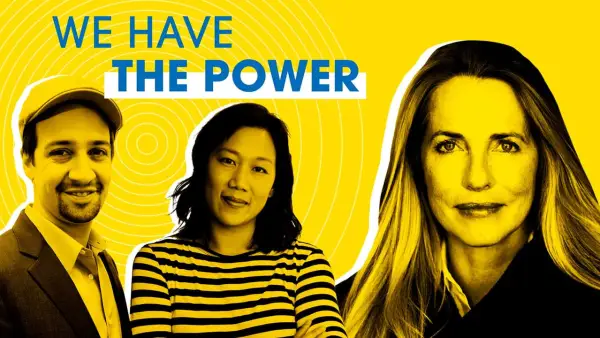
Let’s rethink giving
How can we reimagine philanthropy so that we create a future where there is justice and dignity for all? What are the root causes of the issues and how do we encourage the participation of many and not just a few?
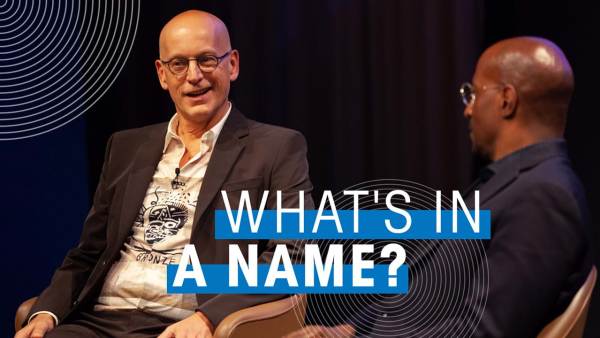
The power of a name featuring Jon Stryker and Van Jones
As a philanthropist, Jon Stryker, president of the Arcus Foundation, believes the act of naming gives power and influence to the work that is supported through his gifts. His philanthropy supports those on the frontlines of justice, providing resources and power to those who need it most.
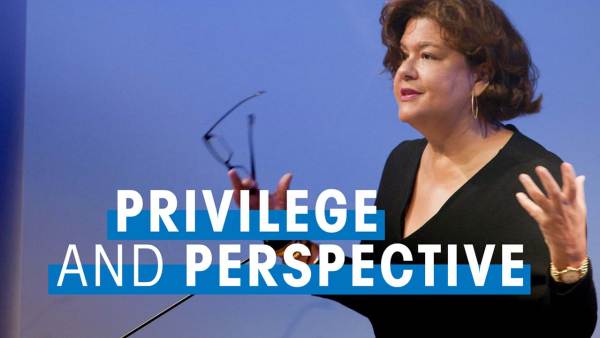
The privilege of perspective featuring Elizabeth Alexander
Elizabeth Alexander, president of the Andrew W. Mellon Foundation, on art, activism, and acknowledging adversity.
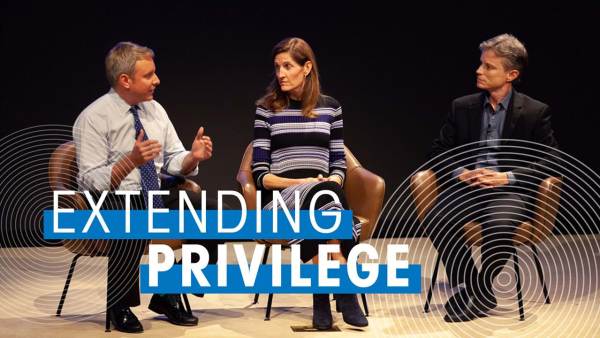
Extending privilege featuring Valerie Rockefeller and Henry Ford III
Henry Ford III, trustee of the Ford Foundation, and Valerie Rockefeller, chair of the Rockefeller Brothers Fund, discuss transforming philanthropy for the 21st century. The families have seen the value of impact investing and believe in partnerships to increase the difference that can be made.
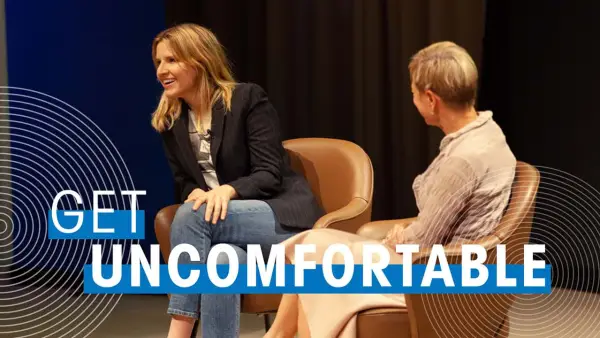
Getting proximate featuring Tara Westover and Hilary Pennington
Tara Westover, author of “Educated,” sees a disconnect between the rural and urban parts of the United States. She believes philanthropists need to be more proximate to the issues they care about, and that spending time with people who aren’t like you is key to disrupting inequality.
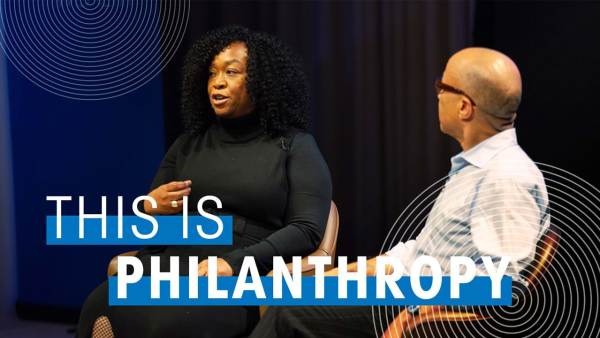
This is what a philanthropist looks like featuring Shonda Rhimes and Darren Walker
Writer and producer Shonda Rhimes has seen the power storytelling has to make change through her work, which centers marginalized people and issues. Rhimes believes philanthropy sets an example others can follow, and says supporting organizations that are already on the ground doing the work is key.
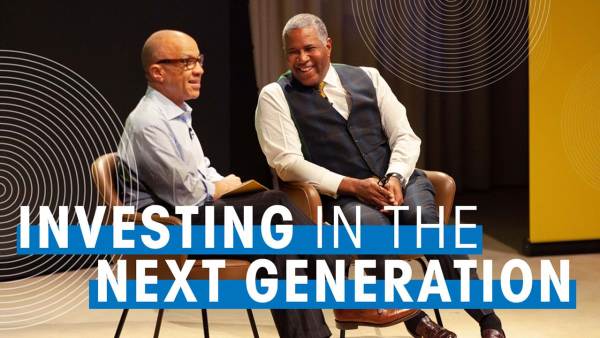
Catalyzing the potential of our time featuring Robert Smith and Darren Walker
Through philanthropy, Robert Smith, CEO of Vista Equity Partners, has alleviated the burden of student debt for a graduating class. He says private philanthropy can help address public policy challenges, such as student loan debt, and is a disruptive opportunity that liberates people to contribute to society in positive ways.
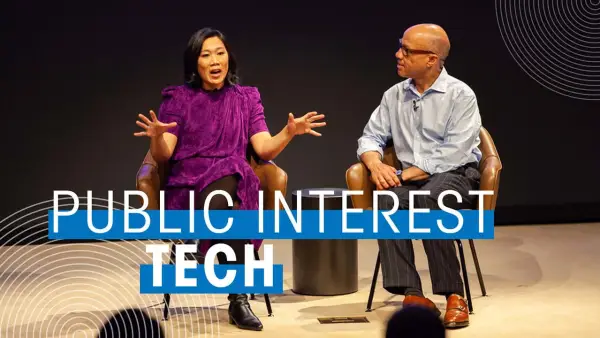
Tech funders changing philanthropy featuring Priscilla Chan & Darren Walker
The top 1 percent of the United States controls 42 percent of the national wealth. Lynn Forester de Rothschild, founder of the Center for Inclusive Capitalism, explains that reimagining the economy and making it a sustainable, inclusive system that leads to strong economic growth requires reform.
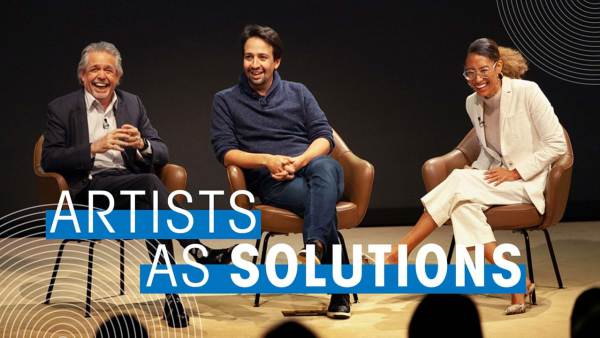
Why artists shouldn’t stay in their lane featuring Lin-Manuel Miranda, Luis Miranda Jr. and Elaine Welteroth
Composer and actor Lin-Manuel Miranda believes all art is political. He and his father, Luis A. Miranda Jr. of the MirRam Group, see the value philanthropy has to empower communities that may have been neglected, and allow them to share their stories through the arts, like Puerto Rico did after Hurricane Maria.
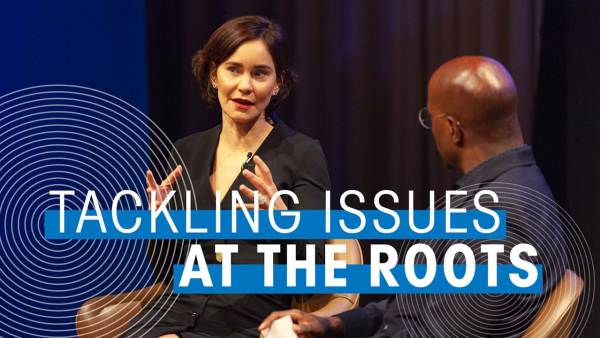
Good philanthropy needs government featuring Laura Arnold and Van Jones
Laura Arnold, co-chair of Arnold Ventures, believes policy change is the lever that will lead to sustainable change. She says we need to attack the systems that are creating the injustices we see, like criminal justice. Philanthropy can create better alternatives that governments can adopt.
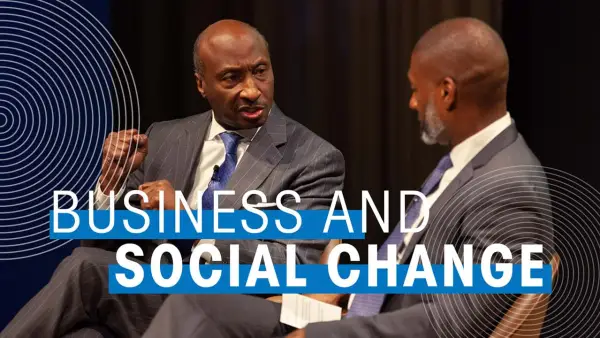
The business of justice featuring Kenneth Frazier and Charles Blow
Kenneth Frazier, CEO of Merck and Co, believes one of the greatest injustices in our society is the health disparities experienced by women of color. A zip code is more likely to determine health outcomes than genetic code. Frazier uses philanthropy to address mortality rate and wants to see more medical personnel listen to their women patients and patients of color.
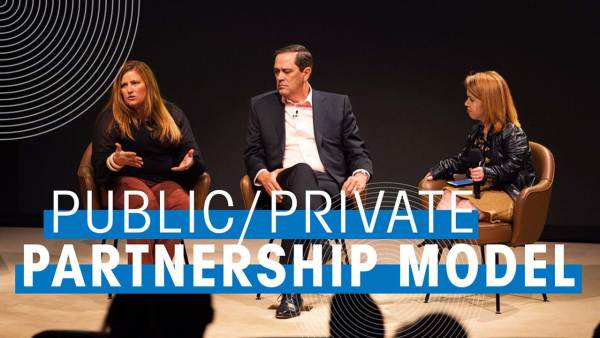
Public-private partnership: A new model for lasting impact featuring Jennifer Loving and Chuck Robbins
Jennifer Loving, CEO of Destination: Home, says a public-private partnership, like the one between her nonprofit and Cisco, headed by Chuck Robbins, can help create a model for the future of philanthropy, and tools like social bonds can help address some of the biggest crises of our time.
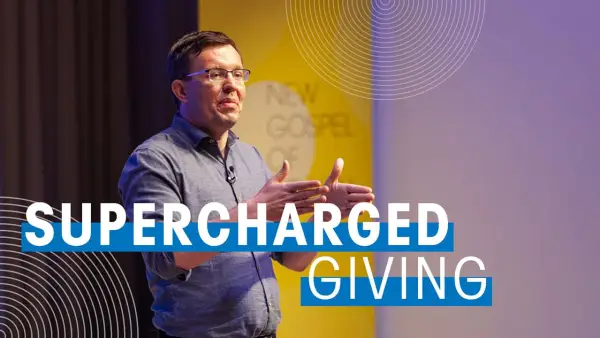
The new power of philanthropy featuring Henry Timms
CEO of Lincoln Center Henry Timms asks how philanthropy can supercharge civic engagement. Timms, who started Giving Tuesday, says trust-based philanthropy needs to shift from generosity to justice, driving more participation from more people, and encouraging meaningful ways to participate and collaborate.
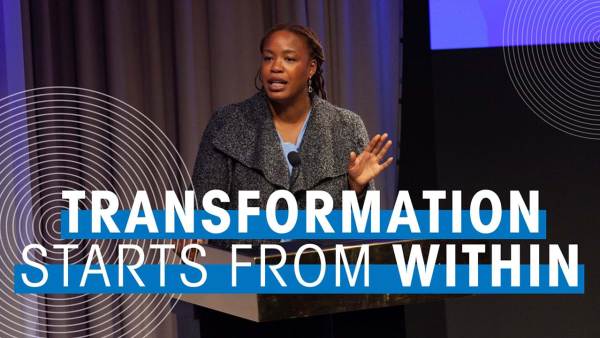
Transforming organizations from the inside featuring Heather McGhee
Heather McGhee, distinguished senior fellow at Demos, shares her experience of working to make the Demos think tank more diverse and led by people of color. Institutional racism, however slight, drives inequality, she says, so transformation needs to be a must-have and not a nice-to-have.
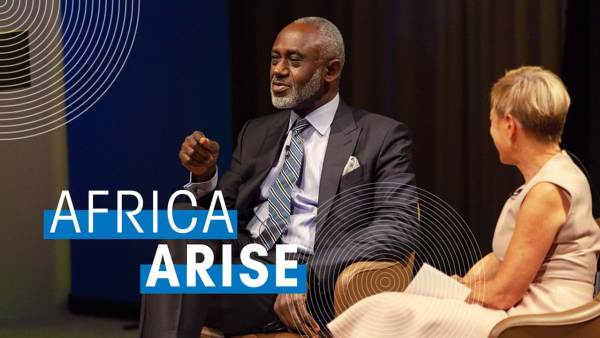
Africa, your time is now featuring Gbenga Oyebode and Hilary Pennington
Ford Foundation trustee Gbenga Oyebode has seen the value of impact investing on the African continent. He believes philanthropy should not just be giving, but investing with a social impact and an economic return. Giving is inherently part of African culture, but needs to be more strategic and collaborative.
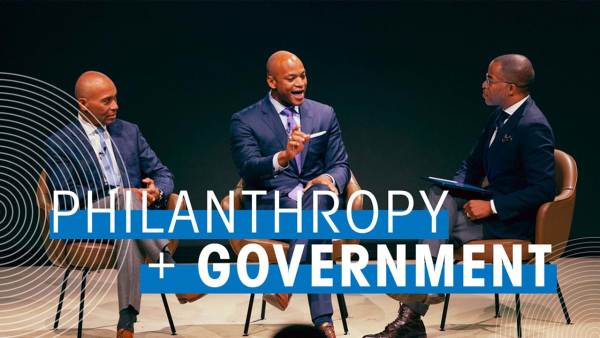
Why good government needs philanthropy featuring Deval Patrick and Wes Moore with Jonathan Capehart
Wes Moore, CEO of Robin Hood, and Deval Patrick, managing director of Bain Capital, see philanthropy working hand-in-hand with government in the fight for equality. Philanthropy can often provide the initial capital needed while government can take over and scale the solution.
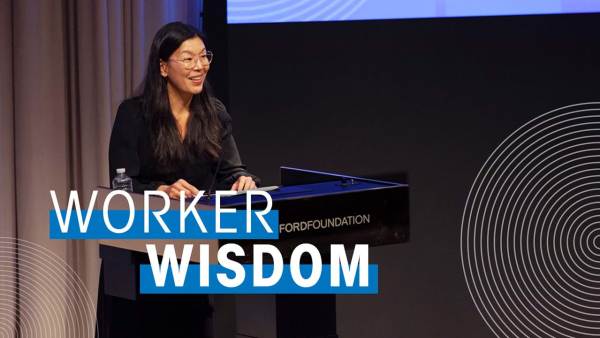
Bringing hidden labor to light featuring Ai-Jen Poo
Ai-jen Poo, executive director of the National Domestic Workers Alliance, says the sector of caregivers and domestic workers continues to grow. Building a future of work that works for all is centered on justice-based philanthropy and not a generosity model.
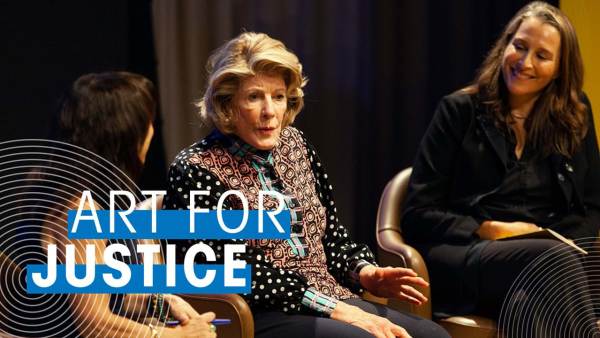
Art for Justice featuring Agnes Gund and Catherine Gund with Maria Hinojosa
The Art for Justice fund was created to help end mass incarceration. Founder Agnes Gund says philanthropy is about addressing issues like this. Catherine Gund believes art has an important part to play in the fight for racial justice and can help change the policies that led to mass incarceration.
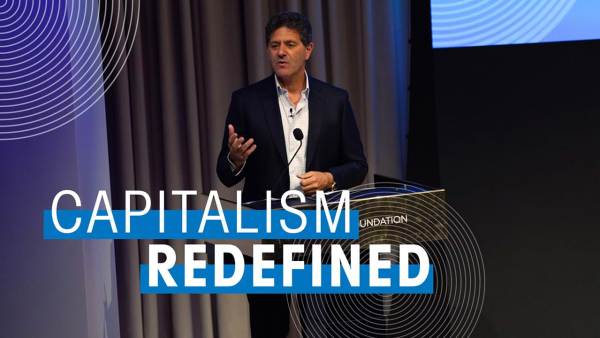
Capitalism redefined featuring Nick Hanauer
Entrepreneur Nick Hanauer asks us to reimagine the economy. He believes we need to change our beliefs about the economy to create a more just, more equitable society for all. By choosing better economic beliefs, we can change society for good.
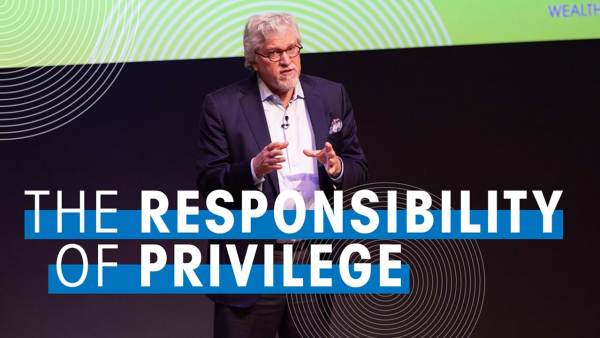
On using power and privilege for change featuring Jeff Raikes
Jeff Raikes, co-founder of the Raikes Foundation, says dismantling racism requires philanthropy to ditch its colorblind approach. People in power need to acknowledge that privilege is invisible to those who possess it. Privilege and power need to be transformed into a force for changing our society for the better.